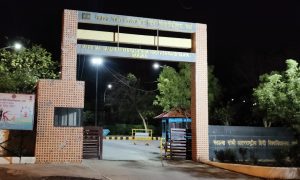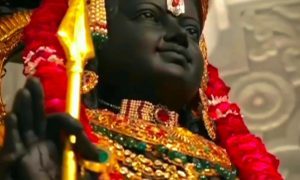Artificial intelligence (AI) today can do a number of things. It can play music. It can play GO. It can even make a painting, just like humans do. Now, AI has achieved another feat. It has predicted which planetary systems will collapse and which will survive in the future.
Space is a tricky territory and it’s not always easy to predict if a planetary system, just our own Solar System, will survive or remain stable for billions of years for a star’s lifetime. But now, a NASA and Princeton University astrophysicist has taught an AI to run simulations for the path a planetary system will take for over billions of years to predict if it will remain stable for the period of a star’s lifecycle.
“Separating the stable from the unstable configurations turns out to be a fascinating and brutally hard problem,” said Daniel Tamayo, a NASA Hubble Fellowship Program Sagan Fellow in astrophysical sciences at Princeton. To make sure a planetary system is stable, astronomers need to calculate the motions of multiple interacting planets over billions of years and check each possible configuration for stability. Modern astronomers still have to “brute-force” the calculations, which takes hours to complete.
Tamayo took a different approach to this problem. He accelerated this process by combining simplified models of planets’ dynamical interactions with machine learning methods, which in turn allowed the elimination of huge swaths of unstable orbital configurations quickly.
Instead of simulating a given configuration for a billion orbits, which would take the brute-force approach about 10 hours to calculate, Tamayo’s AI model did the same for 10,000 orbits, which took the model a fraction of a second to calculate. From this short snippet, the astrophysicist calculated 10 summary metrics that capture the system’s resonant dynamics. Finally, they trained a machine learning algorithm to predict from these 10 features whether the configuration would remain stable if they let it keep going out to one billion orbits.
“We can’t categorically say ‘This system will be OK, but that one will blow up soon…The goal instead is, for a given system, to rule out all the unstable possibilities that would have already collided and couldn’t exist at the present day, Tamayo added.
The AI model called SPOCK (Stability of Planetary Orbital Configurations Klassifier) determines the long-term stability of planetary configurations about 100,000 times faster than the previous approach, which in turn determines if the planetary system will ‘live long and prosper.’






















 WhatsApp us
WhatsApp us
Pingback: keto diet macro calculator
Pingback: gay dating by cock size
Pingback: buy cheap clomid uk
Pingback: bimatoprost 0.01
Pingback: buy zanaflex
Pingback: 1unconcealed
Pingback: https://www.rallypoint.com/shared-links/best-acting-in-casino-1995?cid=3D9834&email_token=3DVUZWQ1prMURXbU5LYTNoSFdIQlBjMVpHU0ZKV1VUSjROMHR6V2xSSGNrRk9ORVVyVVVGeVNtdFlXVDB0TFV0RFp6TmpUVmQyTTNCT2EzVjNSbko0ZWxjNU9HYzlQUT09LS0wNzAyOTYzMGMzZGQwZGRjODUyZDc
Pingback: รับทำเว็บไซต์ WordPress
Pingback: บอลยูโร 2024